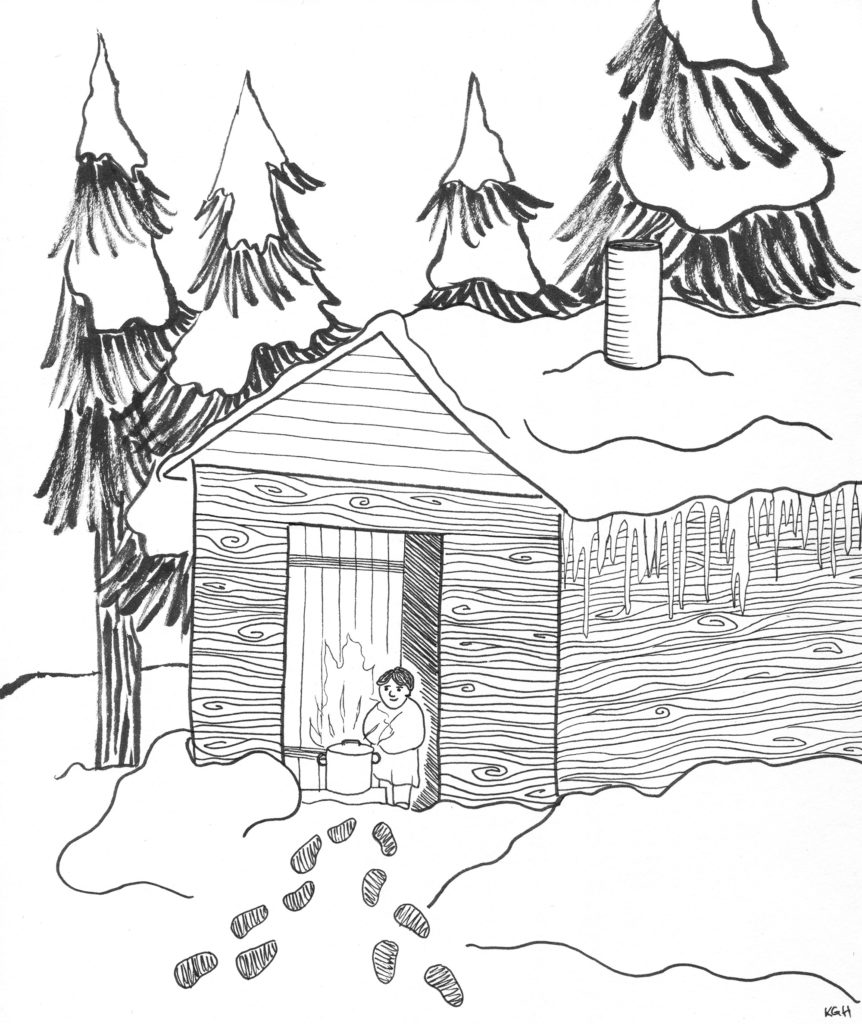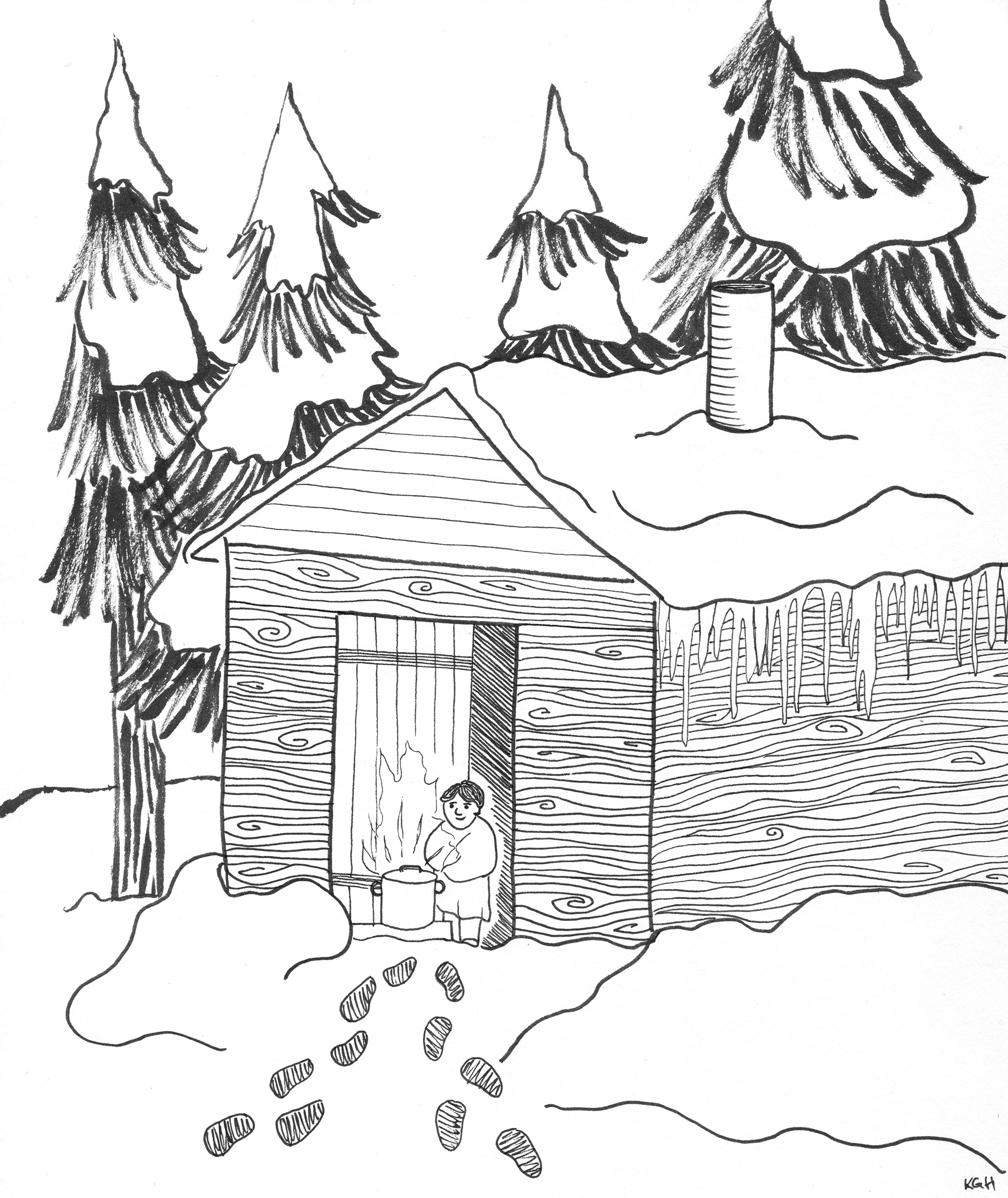
Illustration by Grace Harnois
How my ancestors survived the flu epidemic of 1918-19 has become part of our family’s lore. Can remembering stories like this help us now?
Carl, Vera, and Carl’s brother Morris were homesteading in a log house in Polk County, Minnesota, when the winter of 1918-19 arrived. Carl and Vera had named their first child after his uncle Morris.
When the flu reached their farm, all three adults were laid low. They couldn’t make a meal, couldn’t even to keep a fire burning in the wood stove. Only three-year-old Morris was still on his feet. I imagine he was puzzled that the big people didn’t get up.
A mile down the road, Carl’s brother-in-law Neal scanned the horizon. No smoke rose from Carl’s chimney. Neal went into the house to tell Carl’s sister, Gladys. She dished up a pot of soup. While Neal hitched up the horse, Gladys secured the soup into the sleigh.
Maybe Neal called out to his relatives as he set the pot on the doorstep. Maybe little Morris answered. What I know is that Neal did not enter the house.
Morris got the door opened, pulled that pot of soup in, and then brought soup to each of the adults in their beds.
I was told that Morris saved their lives.
Four years later my dad and his twin sister Dorothy were born to Vera and Carl.
It was Dorothy who took me, decades later, to visit the graves. She said we needed to remember. We visited Carl and Vera’s graves and those of both Great-uncle Morris and Uncle Morris himself.
Then we went to the graves that Dorothy said were probably more important. She pointed to five graves, all in a row and asked me to read the names.
They were from the next farm over. Five people. Everyone who had lived in that farmhouse.
“None of them survived,” Dorothy said. “It is up to us to remember.”
Maybe Gladys and Neil hadn’t known them, or maybe there was no child in their house who was well enough to feed the others.
I remember. But there were others whose graves we did not visit.
Not far from the farm is White Earth Reservation, current home to the people whose ancestral lands our family farm lies upon.
Dorothy didn’t take me to their graves. They also got the flu. I don’t know their names.
Today I ponder these possible lessons —
- Isolate; do not go into the homes of those who may be ill.
- Try to deliver soup.
- Try, also, to feed those in my own home.
- Remember the neighbors; all of them.
- Remember those whom I am likely to forget.
- Especially, remember them.
So now, what is your story? What are your thoughts about mine?

This is more than I knew. I must check the birthdate on Uncle Morris’ grave to learn if he had just turned three, or was almost four. We knew he was a charismatic young man, and I am happy to hear he was also a remarkable young lad. I wonder if Aunt Gladys got carrots, beets and salt pork or chicken feet from the cold cellar to make soup. Grandpa Carl used to love boiling bones for soup telling us that the marrow was his favorite part and made our bodies strong. I think that pot of soup May have given us life? Well no, as God is the giver of life, but I thankful young Morris, Uncle Neal, Aunt Gladys, and her pot of soup.
A powerful conclusion! And reminder!
Miriam,
I love the details in your reply. You have helped revive your ancestors with your memories. I am reminded of a hymn “Precious memories, how they linger….how they speak to our souls” (not an exact quote). Sandy Olson, member of Minneapolis Friends (Quaker) Meeting